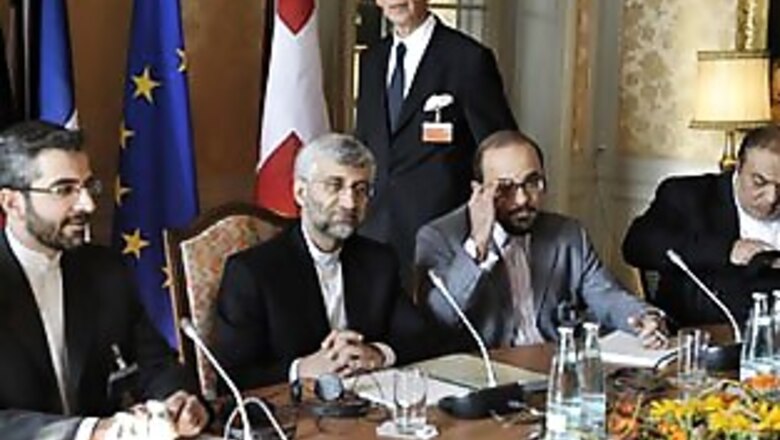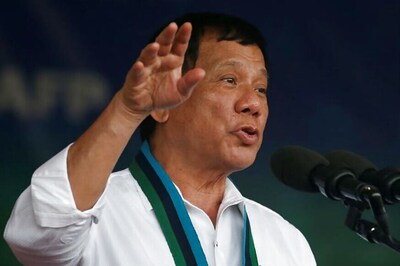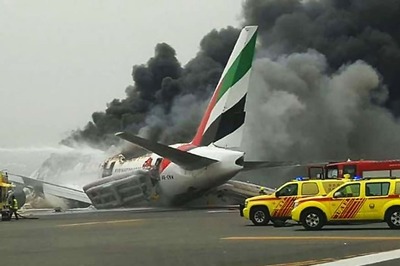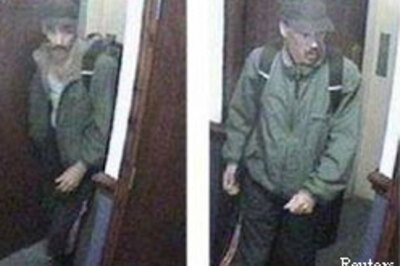
views
Genthod, (Switzerland): The US and five other world powers began high-stakes talks on Thursday with Iran to demand a freeze of its nuclear activities, with the United States saying Washington is open to rare one-on-one talks with Iranian diplomats.
The EU's Javier Solana, who is formally heading the one-day negotiations with chief Iranian negotiator Saeed Jalili, was upbeat before the start of the talks in the ornate villa in Genthod, northeast of Geneva.
Solana opened the discussions, followed by chief US delegate William Burns, with the six powers sitting on one side of a large oval table and the three-man Iranian team on the other, officials inside the meeting reported.
They spoke on condition of anonymity because the talks were closed.
The fact that the meeting is taking place at all offers some hope, reflecting both sides' desire to talk, despite a spike in tensions over last week's revelations by Iran that it had been secretly building a new uranium enrichment plant.
US willingness to talk one-on-one with Tehran during breaks in the meeting also showed Washington's determination to keep the dialogue going.
At the same time, US has signaled it is already contemplating new and tighter sanctions on Tehran, reflecting expectations that the talks may end in failure.
While the West fears that Iran's nuclear program aims to make a bomb, Iran insists the program is strictly for peaceful use and has refused to negotiate any limits on it.
Iran is bringing a broad range of geopolitical issues to the table, while the six powers — the permanent UN Security Council members plus Germany — are seeking to soften Iran's resistance to freezing its uranium enrichment program. The process can make both nuclear fuel and fissile warhead material.
US spokesman Robert Wood said the six would also raise concerns about Iran's recent revelation it is building a second enrichment plant, alongside one that is under supervision by the International Atomic Energy Agency to make sure it makes only fuel and not weapons-grade uranium.
Iran says it has done nothing wrong, saying it reported the facility, near the Shiite holy city of Qom, voluntarily. But the West says Tehran came clean only because it feared that others would reveal the existence of the plant before it did.
IAEA chief Mohamed ElBaradei has publicly said Tehran was "on the wrong side of the law" because it should have revealed its plans as soon as the decision to build the plant was made.
"We would like Iran to basically tell us what it knows about previous nuclear activities and current ones, including information it has about the Qom facility, which we're very concerned about," Wood said.
Asked about US suggestions that Burns was ready to meet Iran's Jalili, Wood said there was "no guarantee ... (but) there will be opportunities on the margins to have sidebar meetings."
An official inside the meeting said any encounter would most likely come during lunch.
PAGE_BREAK
Diplomats at UN headquarters in New York said there has been no discussion of a new sanctions resolution — comments echoed on Thursday in Moscow by French Foreign Minister Bernard Kouchner.
"I'm no fanatic about sanctions," Kouchner told Ekho Moskvy radio. He said sanctions can sometimes be useful and suggested they cannot be ruled out but added "in Geneva, we are not talking about sanctions."
Several said they wanted to wait for a report from the UN nuclear agency on its planned inspection of Iran's newly disclosed nuclear facility and to see Tehran's response to the incentives if it starts negotiations.
But US and other Western officials have said ahead of the talks that the Americans, British and French are already exploring how to tighten existing sanctions and propose new ones, should the talks fail. Those deliberations, they say, include joint new US-European sanctions in case Russia and China — the other two permanent Security Council members — again block UN sanctions.
Moscow and Beijing, which have economic and strategic ties with Iran, are skeptical of UN sanctions and agreed to the sanctions in place only after the West accepted milder penalties than it had originally sought.
While Russia has adopted tougher language since the US administration canceled its missile shield plan for Eastern Europe earlier this month, Beijing continues to insist that persuasion — not sanctions — are the way to deal with Tehran.
Wood suggested that — while Washington was focused on diplomacy for now — "we're not going to do it forever," noting that the Americans continued to be engaged in a "two-track process" — talks first and sanctions if negotiations failed.
American officials have held out the hope that Thursday's talks could result in a second meeting. Russia's UN Ambassador Vitaly Churkin also said Moscow was looking for "a start that has a continuation."
In Tehran, President Mahmoud Ahmadinejad said the talks will gauge others' respect for Iran's rights.
"This meeting is a test to measure the extent of sincerity and commitment of some countries to law and justice," Ahmadinejad said Wednesday.
At best, Thursday's talks could start lowering passions over the hidden plant, Iran's three-year defiance of the UN Security Council's enrichment ban and Western assertions that Tehran is a supporter of terror — and lead to another meeting later this year.
That, in turn, could be the start of a process that could not only end the threat of an Israeli or US strike against Iran's nuclear facilities as a last resort. It could ultimately lead to an agreement on a limited Iranian uranium enrichment program — but under tight international controls.
Such hopes are tenuous. Since the five nations first proposed political and economic concessions to Tehran in return for stopping its enrichment activities three years ago, Iran has expanded the program. It now has more than 8,000 centrifuges set up in its cavernous underground facility at Natanz, with most working to churn out fuel-grade enriched uranium.




















Comments
0 comment